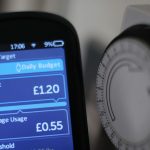The amount of money borrowed by consumers rose to a five-year high in June as inflation and interest rate pressure hit households, Bank of England figures show.
Net consumer credit rose to the highest since April 2018 – £1.7bn was borrowed last month, following a £500m decrease in lending in May.
The increase came as people took out £1bn on personal and car loans, up £500m on the month before. Borrowing on credit cards remained stable at £600m.
Despite rising interest rates making debt and mortgage bills more expensive, the number of mortgage approvals rose in June.
Approvals for house purchases increased to a surprise 54,700 – the highest number since October 2022. Remortgaging also rose to 39,100 approvals during the same period.
Interest rates have been upped 13 consecutive times in an effort to bring inflation – which stands at 7.9% – down to 2%.
The full impact of these rate rises is unlikely to have filtered in to the rates being quoted in June and may not be seen fully until October.
Rising interest rates mean quantitative easing costs £50bn more
Credit Suisse handed record £87m fine by Bank of England
Biggest increase in mortgage defaults since 2009, survey of lenders finds
Read more business news:
Allison Kirkby announced as first female chief executive of BT
Banks launch mortgage support campaign following deal with Hunt
Be the first to get Breaking News
Install the Sky News app for free
The rising interest rates did encourage consumers to return to saving after a record amount was withdrawn in May.
An additional £3.4bn was deposited with banks and building societies following net withdrawals of £3.1bn in May.
Savings were mostly deposited in to interest-bearing time accounts – £6.6bn flowed in to such accounts, up from £5.1bn the month before.
Please use Chrome browser for a more accessible video player
And after seven months of net withdrawals, deposits into non-interest bearing accounts rose to £2.1bn.
Despite the Bank’s base interest rate standing at 5%, the effective interest rate actually being charged on new mortgages was 4.63%.
“Increases are likely to gather pace given the sharp rise in mortgage rates more recently,” said Andrew Wishart, senior property economist at Capital Economics.
Net borrowing of mortgage debt by individuals increased to £100m last month, after net repayments of £100m in May and record high net repayments of £1.1bn in April this year.






















